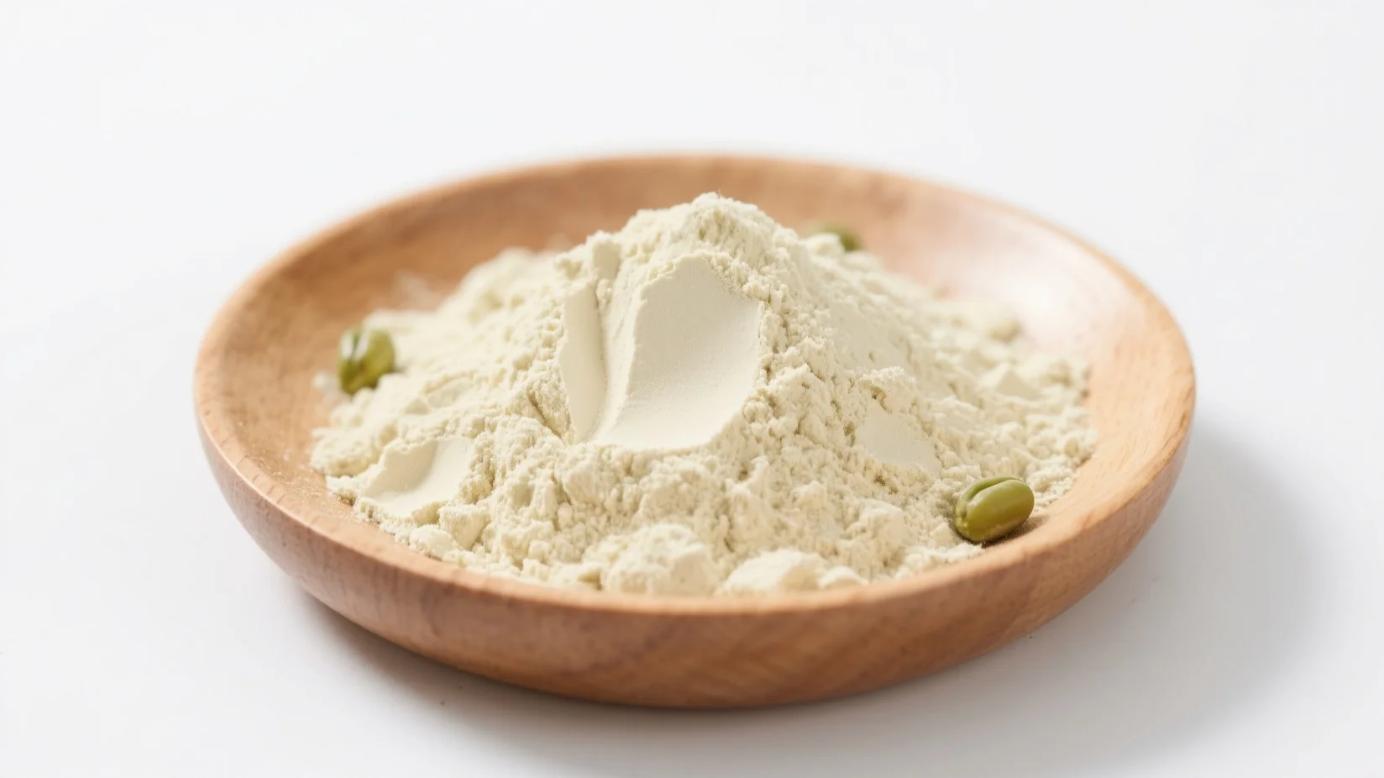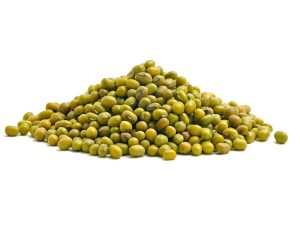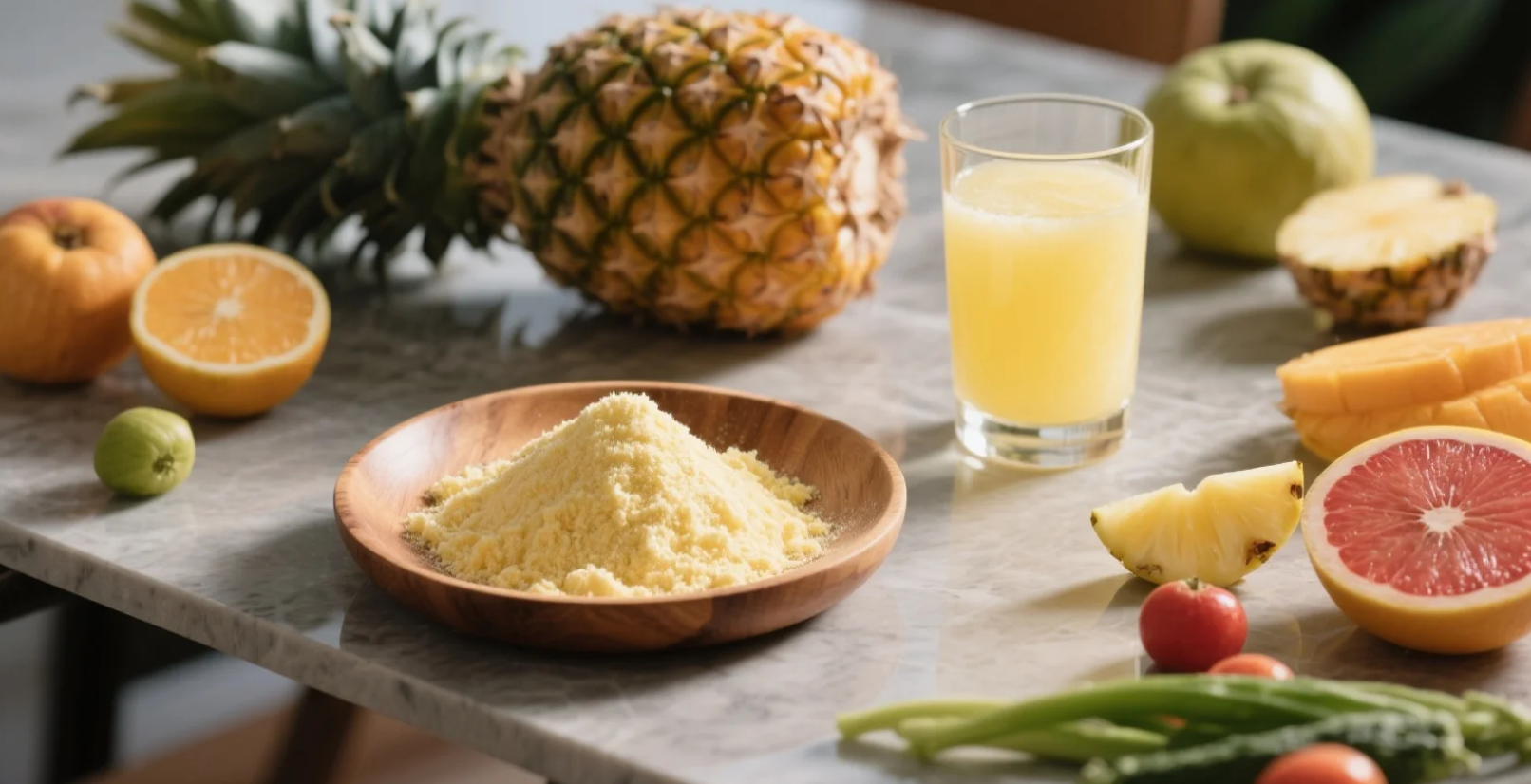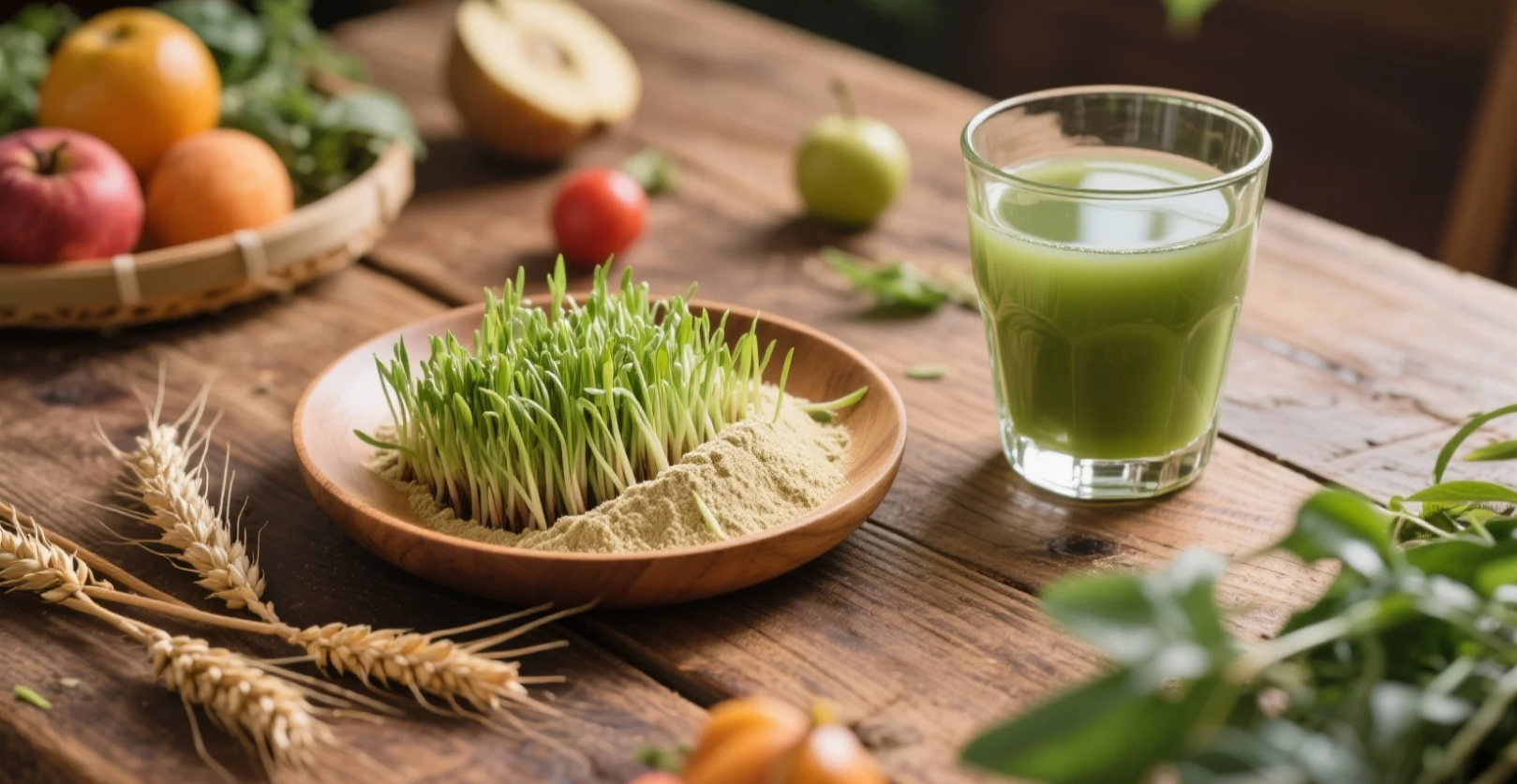Table of Contents
Mung beans, a staple in Asian cuisines for millennia, are now gaining global fame as a plant-based protein hero. But does this humble legume truly hold its own against protein giants like whey or pea? Let’s unpack the science, benefits, and smart ways to use organic mung bean protein powder for muscle, metabolism, and beyond.
Mung Bean Protein: A Complete Plant Powerhouse?
Yes! Mung beans pack 20–24g of protein per 100g in powdered form, rivaling lentils and chickpeas. But what sets them apart:
- Complete Amino Acid Profile: Contains all 9 essential amino acids, including lysine (often low in plants).
- High Digestibility: 85% digestibility score (vs. 78% for pea protein), thanks to low anti-nutrients like phytic acid.
- Hypoallergenic: Gluten-free, soy-free, and less gas-inducing than other legumes.
Organic Mung Bean Protein Powder vs. Other Plant Proteins
| Protein Source | Protein per 100g | PDCAAS Score | Allergy Risk |
|---|---|---|---|
| Mung Bean | 24g | 0.75 | Low |
| Pea | 25g | 0.73 | Moderate |
| Soy | 36g | 1.00 | High |
| Hemp | 15g | 0.63 | Low |
PDCAAS = Protein Digestibility Corrected Amino Acid Score
5 Science-Backed Benefits of Organic Mung Bean Protein
- Muscle Growth & Recovery: Leucine-rich (2.2g per serving) to stimulate muscle synthesis post-workout.
- Blood Sugar Balance: Slowly digested, with a low glycemic index (GI 31)—ideal for diabetics.
- Gut Health: Resistant starch feeds probiotics, reducing bloating and IBS symptoms.
- Antioxidant Boost: Vitexin and isovitexin fight inflammation linked to chronic diseases.
- Weight Management: 12g fiber per serving promotes satiety and curbs cravings.
Who Should Try Mung Bean Protein?
- Vegans/Vegetarians: A complete protein alternative to soy.
- Fitness Enthusiasts: Faster recovery than rice protein, per a 2023 study.
- Eco-Conscious Consumers: Mung beans use 90% less water than almonds.
- Gluten-Free Diets: Safe for celiacs and gluten-sensitive individuals.
How to Use Organic Mung Bean Protein Powder
- Post-Workout Shake: Blend 1 scoop with almond milk, banana, and cacao.
- Savory Soups: Thicken lentil or veggie soups with 2 tbsp powder.
- Baking Boost: Replace 15% flour in pancakes or bread for protein-packed fluffiness.
- Energy Bars: Mix with dates, oats, and organic apple powder for no-bake snacks.
- Vegan “Eggs”: Combine 1 tbsp powder + 3 tbsp water = 1 egg substitute.
Why Organic Matters
Conventional mung beans are often treated with glyphosate and synthetic fertilizers. Certified organic mung bean protein powder guarantees:
✅ No pesticide residues (like chlorpyrifos)
✅ Non-GMO and kosher/halal-certified
✅ Sustainable farming (mung beans fix nitrogen in soil, reducing fertilizer need)
Potential Downsides (and Fixes)
- Bland Flavor: Add cinnamon, vanilla, or organic monk fruit powder for sweetness.
- High Fiber: Start with ½ scoop daily to avoid digestive discomfort.
- Cost: More affordable than organic pea protein—$1.50/serving average.
FAQs
Q: Can mung bean protein replace whey?
A: Yes! It’s lactose-free and equally effective for muscle gain when paired with strength training.
Q: Safe during pregnancy?
A: Yes—its folate (40% DV/scoop) supports fetal development.
Q: Shelf life?
A: 2 years in airtight containers; store away from heat/humidity.
Q: Any drug interactions?
A: None reported, but consult a doctor if on anticoagulants (contains vitamin K).
The Verdict
Organic mung bean protein powder isn’t just a good protein source—it’s a great one. With complete aminos, gut-friendly fiber, and unmatched versatility, it’s a sustainable, allergy-friendly choice for athletes, vegans, and health-conscious foodies alike.
Ready to Plant the Seed of Better Health?
Fuel your body with certified organic mung bean protein powder—where ancient nutrition meets modern science. Blend it, bake it, or shake it into your routine, and discover the legume that’s quietly revolutionizing plant-based protein.
Nourish stronger, live lighter.
Related Products
Organic Mung Bean Protein Powder
A high-purity (80%) plant protein with exceptional gelling and emulsifying properties. This…
Organic Mung Bean
Brand: ORGANICWAY
Organic Pea Protein Powder
A high-purity, 80% vegan protein isolate with a robust amino acid profile.…




